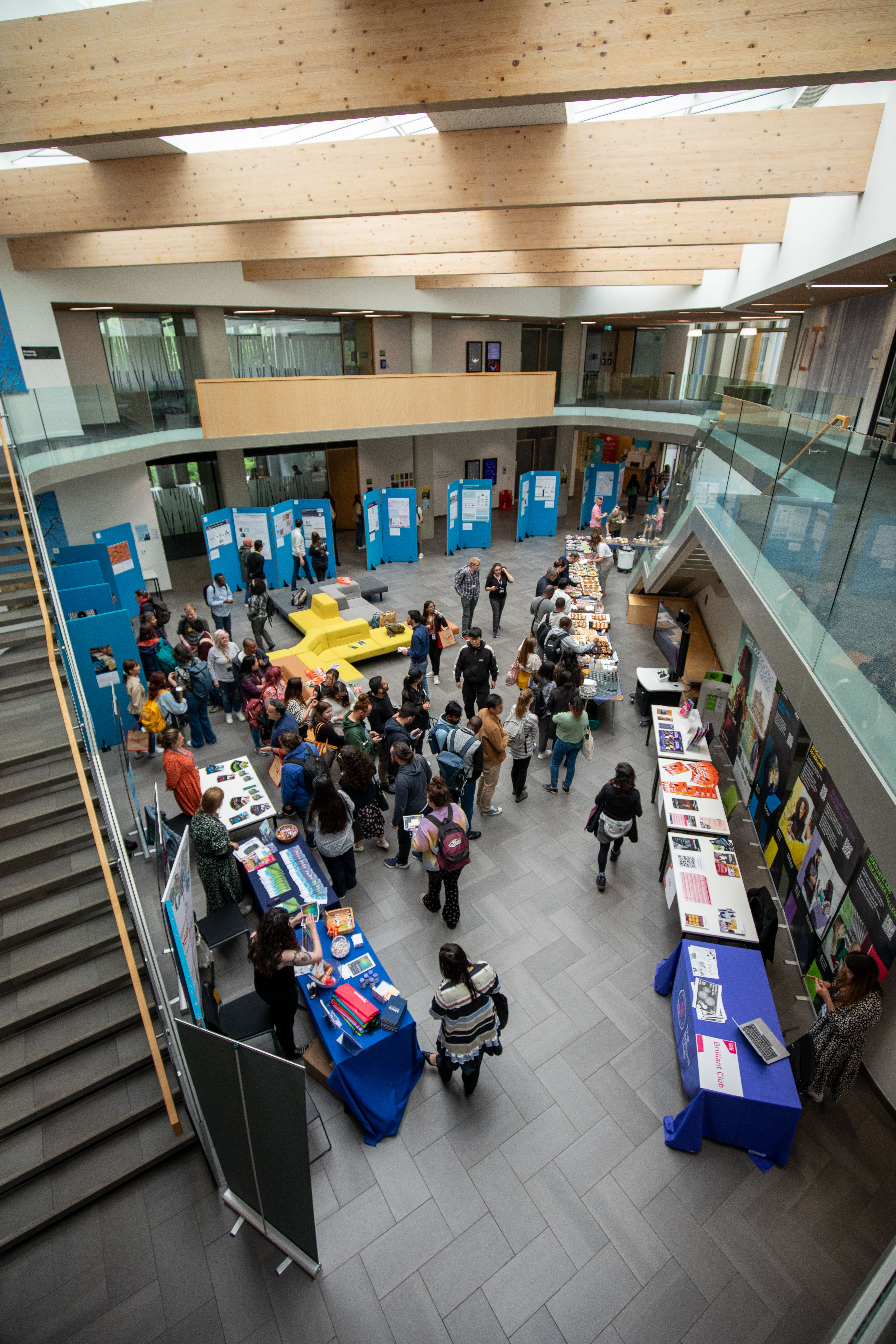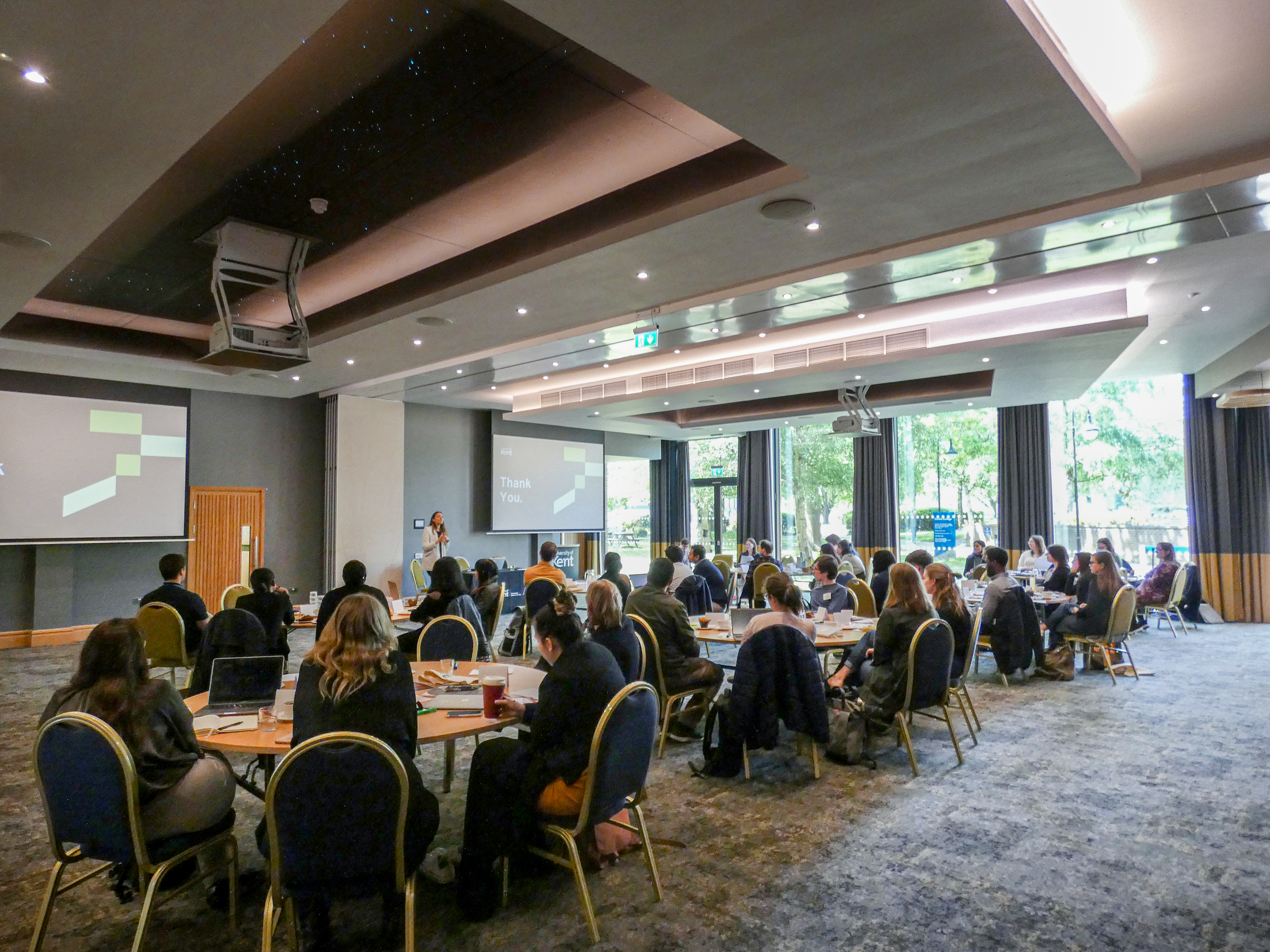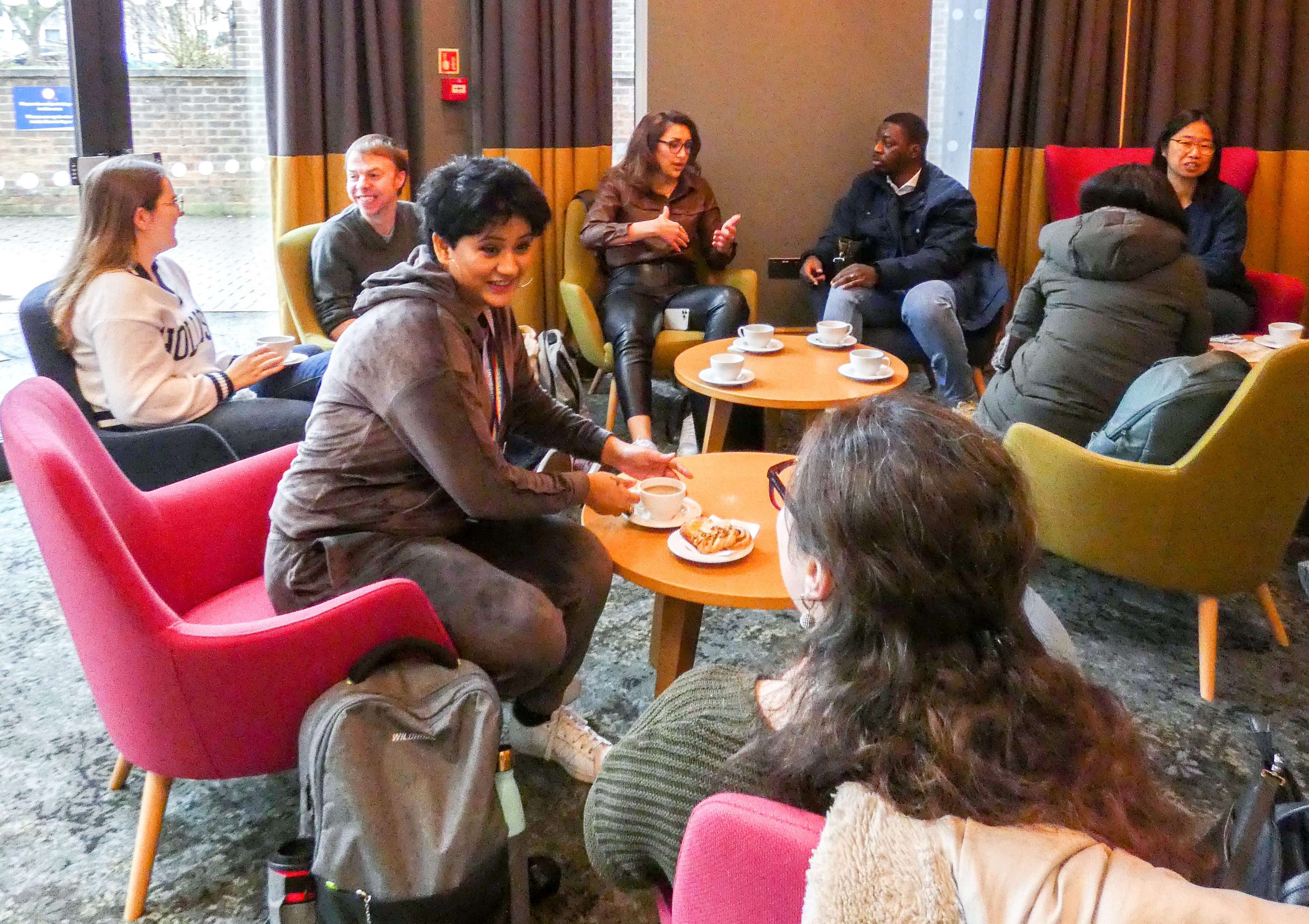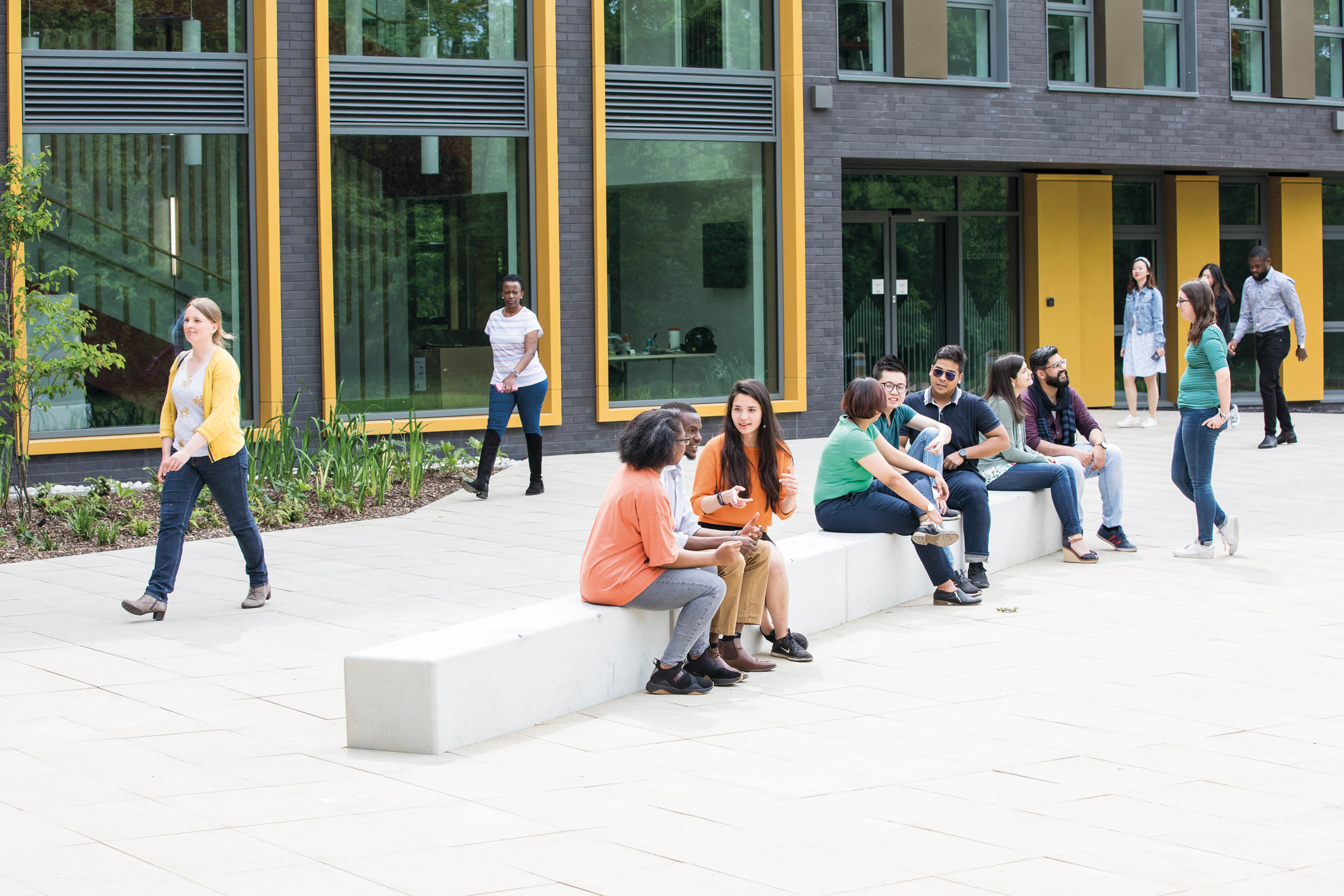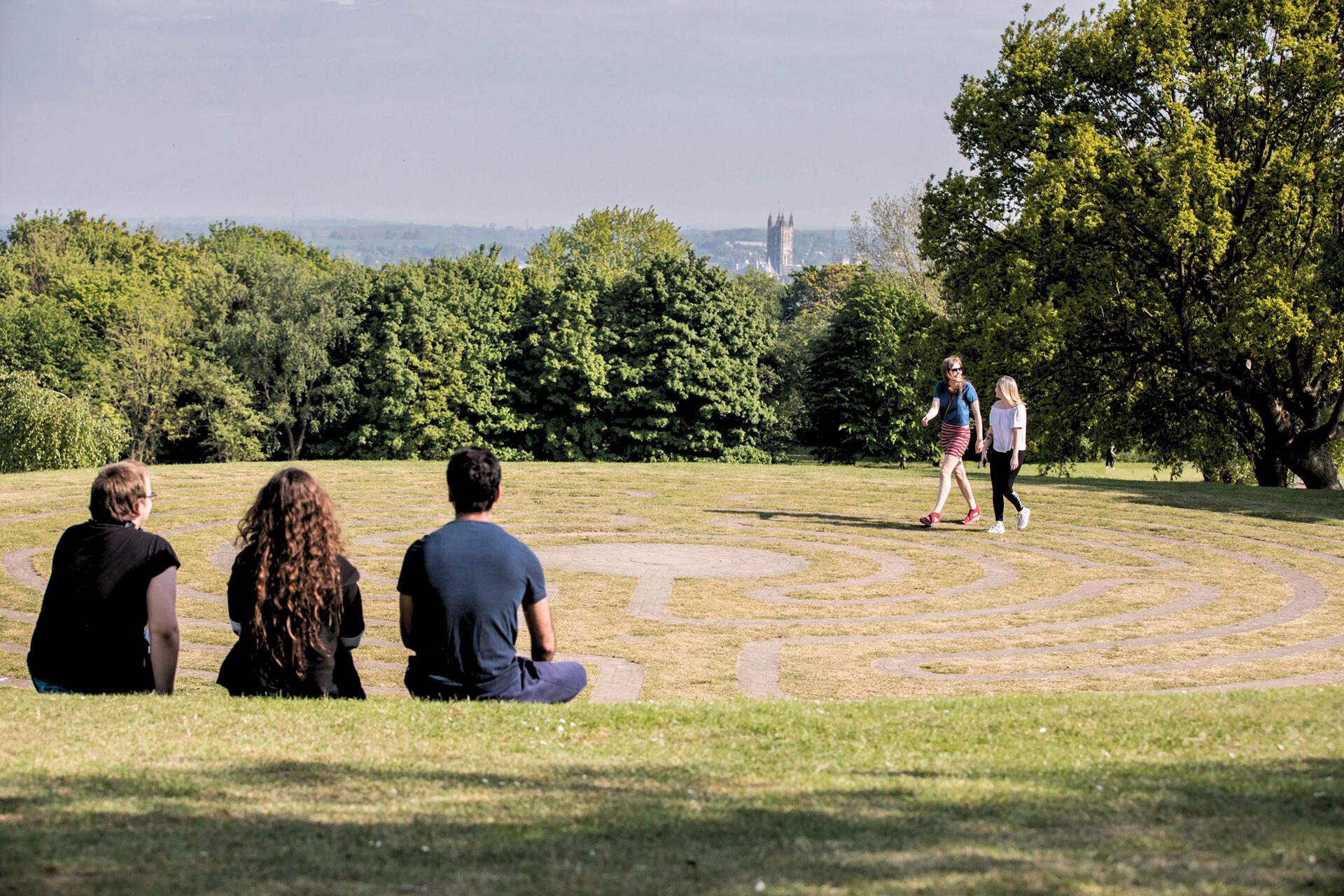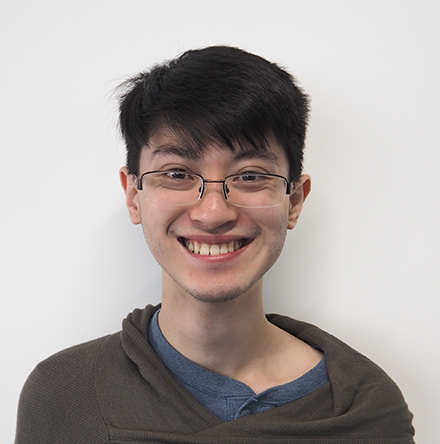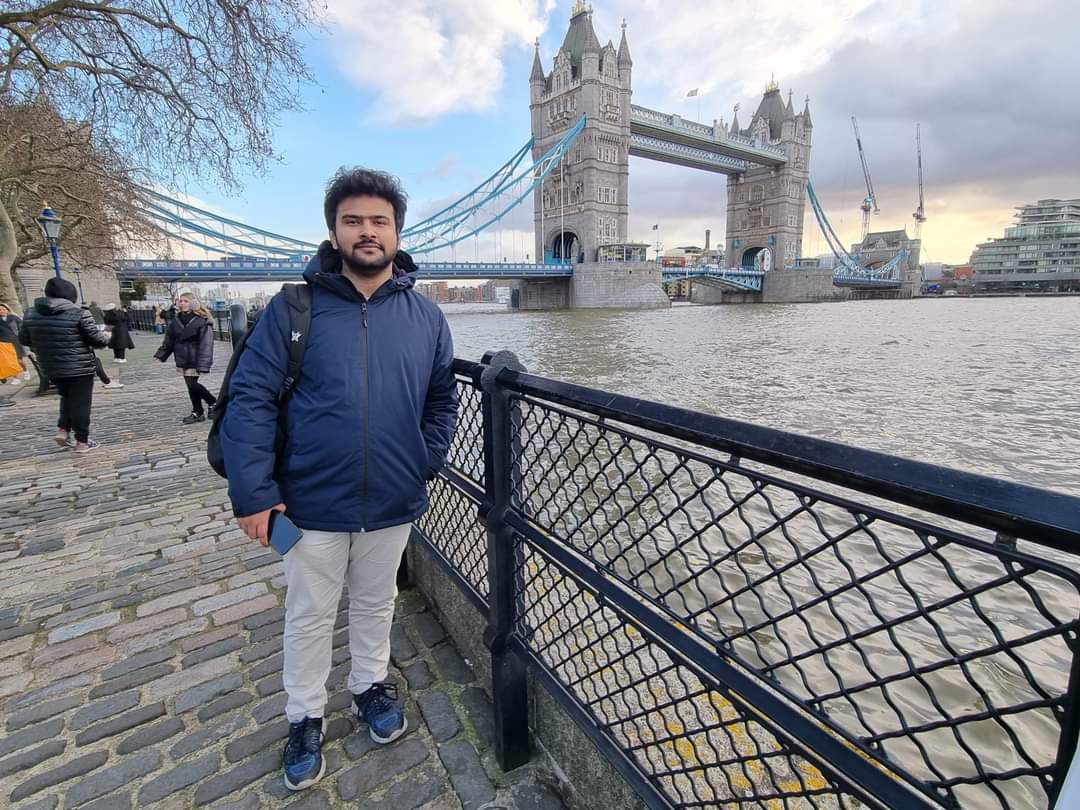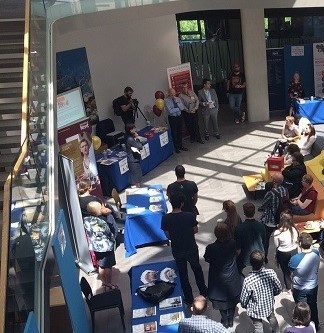On the 7th of June 2023 the GRC welcomed staff and students alike to our Annual Postgraduate Conference.
It was a busy and vibrant day celebrating all of our of postgraduate researchers, thank you to all who attended. If you have any feedback from the event, please do fill out our form here.
We kicked off with a fascinating, informative and all too brief discussion on AI in Academia, expertly lead by our host Tommy Pargeter-Grey. Many thanks to the interdisciplinary panel Alhena Saghir, Jerome Jaggi, Zsofia Baruwa and Harrison Grey for their insights. We will undoubtedly be having many more conversations like this, and do look out for our Research Cafes running termly from autumn. These will provide an opportunity for Postgraduate Researchers to present their research and participate in a thematic discussion.
The Kent Researcher talks featured some our most exciting postgraduate projects explained in just over ten minutes by their researchers. Yeshashwini Kadiri spoke on ‘Informal Urbanism and Gendered Infrastructure in the Global South’, Bamidele Ogunjumelo on ‘3-D Flame Visualisation through Optical Imaging’ Sophia Ppali on ‘Music from anywhere & everywhere: Exploring the design space of remote music performances’ and Antonis Karamalegkos delivered ‘Investigating the effects of Natural compounds on health and lifespan’. We’ll never think about worms in the same way.
After lunch, the final for our annual 3MT Competition was held, with the Runner Up being Richi Mohanty and winner Maria Alvarez taking first place. Congratulations! This was immediately followed by our special guest speaker Dave Thomas giving an important and fascinating talk on Diversity, Inclusion and Decolonisation in Postgraduate Research.

Our last panel included speakers from three of Kent’s Research Institutes. Catherine Richardson from the Institute of Creative and Cultural Industries presented with David Sefton, and gave us a tantalising hint and the exciting interdisciplinary creative arts project taking place in Medway at the Docking Station. Shujun Li told us more about the Institute of Cyber Security and Bob Smith told us about the European Bison in Blean as part of an update from the Durrell Institute of Conservation and Ecology. All day attendees were able to view the many incredible research posters, and photographs entered in the conference competitions.

Awards Ceremony
We ended with an awards ceremony and drinks reception, which celebrated the winners of the Three Minute Thesis, Research Poster Competition, Research Photograph Competition, and the GRC Prizes. Thanks to our poster and photo judges Dave Thomas, Gordon Lynch, Jim Ang, Jess Day and Shujun Li. We were delighted to announce the winners of all our competitions this year at the event. These were:
Three Minute Thesis
Runner Up – Richi Mohanty
Winner – Maria Alvarez
Research Poster
People’s Choice Winner – Yeshashwini Kadiri
Judges Highly Commended – Katrine Callander
Judges Winner – Sophia Ppali
Research Photograph
Judges’ Winner – Minoya Patkunam
People’s Choice – Sophia Ppali
Graduate and Researcher College Prizes
Director of Graduate Studies/Programme Lead Maria Elisavet Balta
Postgraduate Professional Service Champion Alexandra Marnerou (Highly Commended: Dave Donaldson, Arts and Hums PGR Admin Team)
Postgraduate Teacher George Simpson
Research Degree Supervisor Donna Arnold (Highly commended: Ambrose Gillick)
Postgraduate Researcher Daniel Marshall (Highly commended: Holly McPhillips)
All Photos: Nathan Eaton-Baudains
